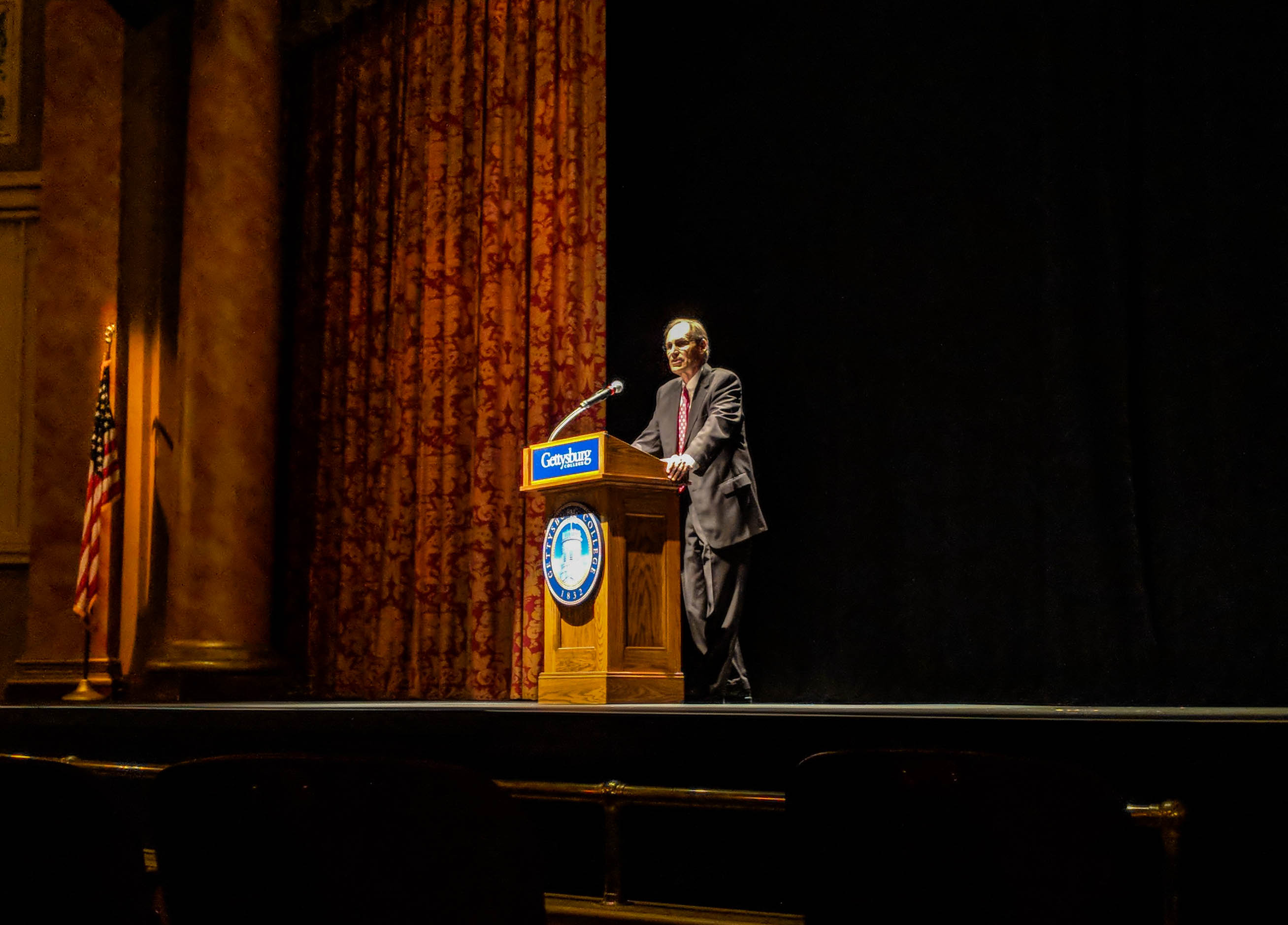George Rable Delivers 57th Annual Robert Fortenbaugh Memorial Lecture
By Mary Frasier, Staff Writer
On Monday, Nov. 19, the 57 Annual Robert Fortenbaugh Memorial Lecture took place at the Majestic Theater. The event is held in memory of Professor Robert Fortenbaugh, who taught in history department at Gettysburg College for over thirty years. The lecture takes place on Nov. 19 every year, in order to honor the anniversary of the Gettysburg Address. The Civil War Institute and History Department sponsored the talk, organizing and orchestrating the invitation only dinner beforehand and the lecture later in the evening, which was open to the public.
This year’s featured speaker was Dr. George Rable, Professor Emeritus and formerly the Charles G. Summersell Chair in Southern History at the University of Alabama. From 2004-2008 he had served as the President of the Society of Civil War Historians. Dr. Rable has published six books and is currently working on his seventh. Among his other achievements, Damn Yankees! Demonization and Defiance in the Confederate South, his most recently published book, was the winner of the James I. Robertson, Jr. Literary Prize.
In his lecture “Fighting for Reunion: Dilemmas of Hatred and Vengeance,” Dr. Rable began by reciting a quote from president Abraham Lincoln prior to the outbreak of the war. “We are not enemies, but friends. We must not be enemies,” said Lincoln. The 16th president did not want the war to turn into a bloody and remorseful war, but, unfortunately, that is exactly what happened. Rable stated that while not all supporters of the Union agreed with this conviction, many took Lincoln’s admonition to heart. Lincoln had a conciliatory policy during the Civil War years, insisting that vengeance not be taken against the South. The army was to embrace Christian teachings and love their enemies because they were also Americans. However, after the first few years of the war, people were much less inclined to think in this manner.
Dr. Rable proclaimed that a multitude of various communities and identities attempted to blame other groups for the coming of the Civil War. No one wanted to admit their possible responsibility in the affair. For instance, Catholics blamed Protestants for the bloodshed of the conflict. Many southerners and slaveholders blamed the radical and ardent vision of the abolitionists, saying it was the catalyst for the war between the Yankees and Rebels. “Fear became a staple effect,” stated Dr. Rable, speaking to about the majority of southerners who feared slave rebellion, causing their hatred to deepen for abolitionists and their message. Due to the fear and loss during the war, hateful words were often followed by the call for vengeance and swift retribution.
The speaker concluded his lecture by explaining that the fear and hatred on both sides of the war often turned into violent vengeance. This occurrence unfortunately caused Reconstruction after the war to be very difficult to enact, enforce, and complete. Dr. Rable’s conclusion was met by a thunderous applause and was followed by a reception in the lobby of the Majestic Theatre. During the reception, Dr. Rable signed copies of his book, with many of his published works on sale, courtesy of the Gettysburg College Bookstore.

